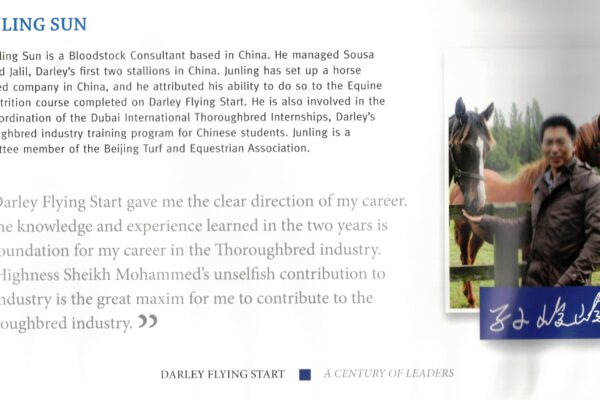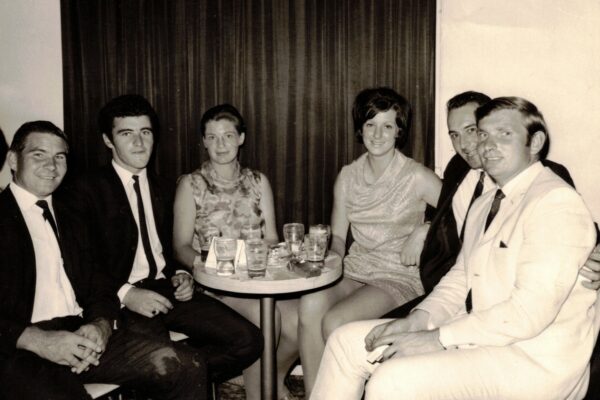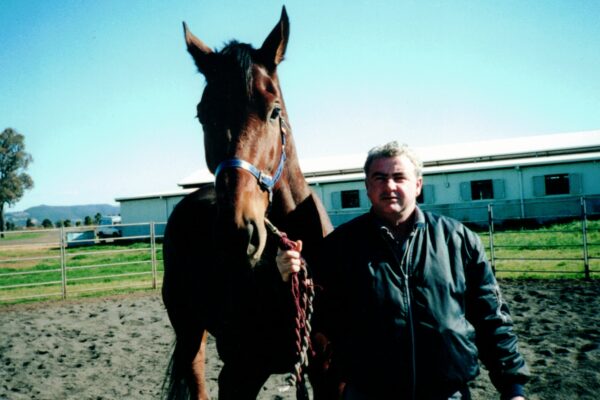“Right You Are”
Featured Image: John Gilder and the Governor of NSW Sir Roden Cutler step out at Warwick Farm in July 1980
Australian Remounts for India.
John Gilder has written a poignant and fascinating history about his family and his late father Ted Gilder in particular. He called the book: “Right You Are”. It’s a most apposite title. I commend it to you. John may have been partially motivated to do this following the publication of my ‘The Infinitive History of Veterinary Practice in Scone”? John would certainly have wished to ‘put parvenu arriviste professionals’ firmly back in place? He succeeded; in spades! Perhaps I flatter myself.
The Gilder Family of ‘Piercefield’ between Denman and Muswellbrook were responsible for sending at least 10,000 horses to India as British Army Remounts. The late Danny Edwards worked in the export trade for 11 years in the late 1920s and 1930s. He had some incredible tails to tell! ‘800 hundred horse in a paddock is a lot of horses’. He recounted how an outbreak of strangles on one voyage led to the ‘disposal’ of 96 horses at sea. I saw one ‘burial-at-sea’ on my trip to the USA in 1970. He also told me about a mythical condition they called “Sea Lung”. These were the horses he/they considered would not pass inspection on arrival in Bombay. They were also ‘culled’. It might have been merciful?
Dr Judy White recounts a fabulous tale in her book ‘Horses in the Hunter’ about John’s father Ted Gilder and his remarkable part TB/part pony mare “Swallow”. Ted Gilder managed both ‘Piercefield’ at Denman and ‘Murrumbo’ in the Bylong Valley. They were 50 miles apart. Ted left Piercefield by 3:30am mounted on ‘Swallow’ and could be back for dinner at 9:00pm having traversed over 100 miles in 18 hours! ‘Swallow’ was also a champion all-round stock horse and polo pony.
Australian Remounts for India
https://trove.nla.gov.au/newspaper/article/59672265 29 June 1905
Colonel Howard Goad, Director General, Army Remount Department of India, who was recently in Australia purchasing horses for the Indian service, has forwarded to the Premier of New South Wales a report on Australian remounts. He says “The Government of India, takes from two to three thousand horses annually for army purposes (last year 1904 four thousand) at £45 per head, landed and approved in India. The horses brought over for this purpose are nearly all unbroken. These horses are mainly horse and field artillery class, with more or less cavalry from time to time. These artillery classes are the pick of the horses of that type bred in Australia, and unfortunately the class is decreasing rapidly. I would not have bothered you with this subject were the matter not entering into an acute stage, but horses of the class required are now so scarce that they realise prices at which our shippers will not be able to continue the trade,, and I have this season had to export horses for army purposes from N. America, Argentina, and Hungary, in order to see how these horses do in India, and thus be able to turn elsewhere at once for remounts should Australia fail us.
It would be a matter of the deepest regret should I have to do so, for, as we stand, I believe that no other army in the world is horsed as well as His Majesty’s army in India is with our Australian horses, and I sincerely trust that the supply may continue. The difficulty now experienced in obtaining the class of horse we require to arm in India is I believe (and I have looked into the matter), mainly due to the facts:
“(1) That many inferior stallions are being used.
“(2) That owners have sold many of their best mares for export.
“The remedy, if I may be allowed to offer an opinion, is:
“(1) A tax on all stallions,’ none being allowed to cover unless passedby a duly qualified official appointed to inspect them.
“(2) In Government providing really good stallions-thoroughbred Clydesdales, Suffolks, and Welsh ponies-for use by breeders at a nominal fee. This system obtains in all the great horse-breeding countries in Europe (I personally have had the advantage of visiting these countries for the Government of India, and studying the systems in force); or
“(3) In giving premiums to private individuals [as is done on a very small scale in England], who will stand approved stallions at a nominal fee for the use of breeders.
“(4) Steps should be taken to prevent the best mares leaving the country.










